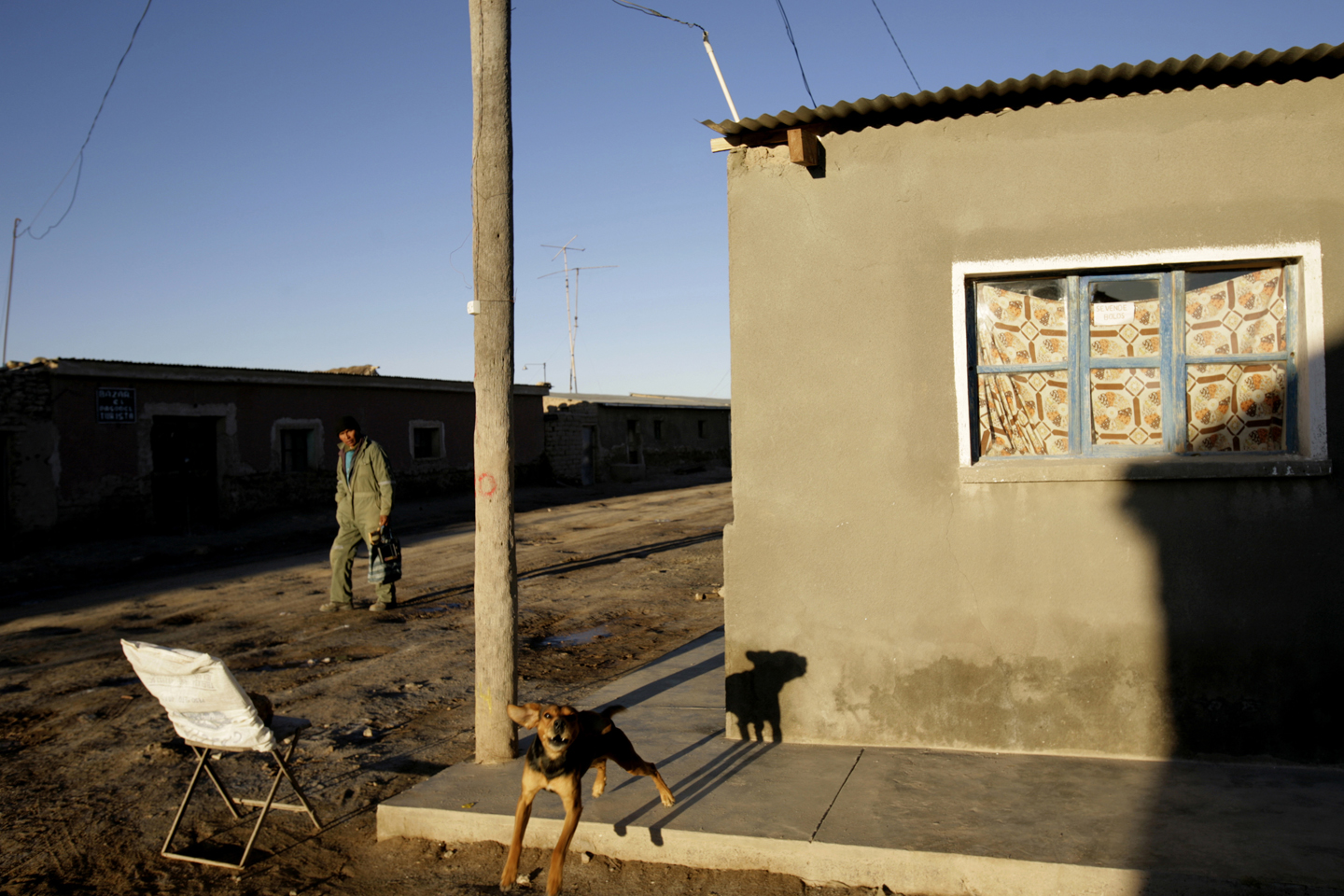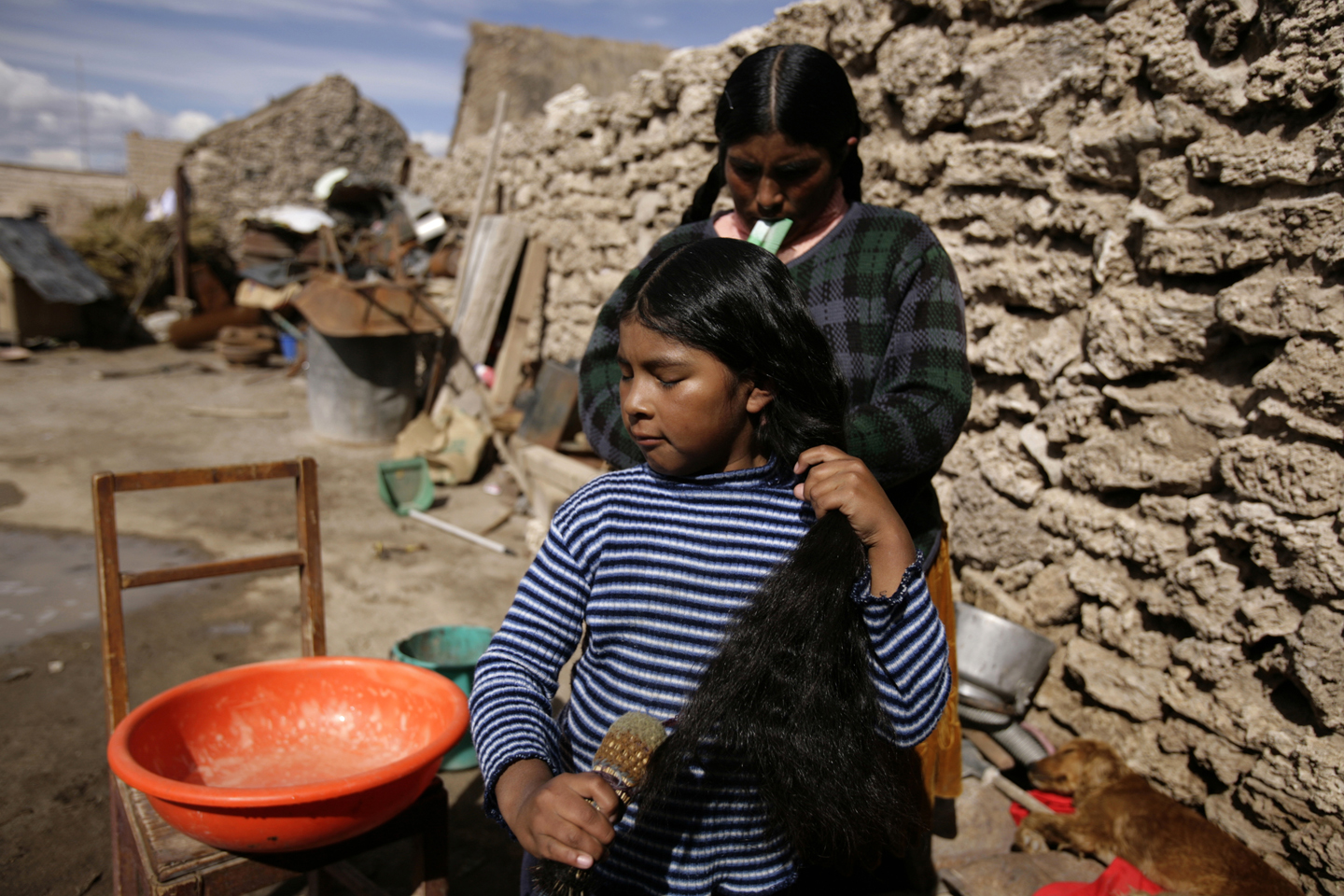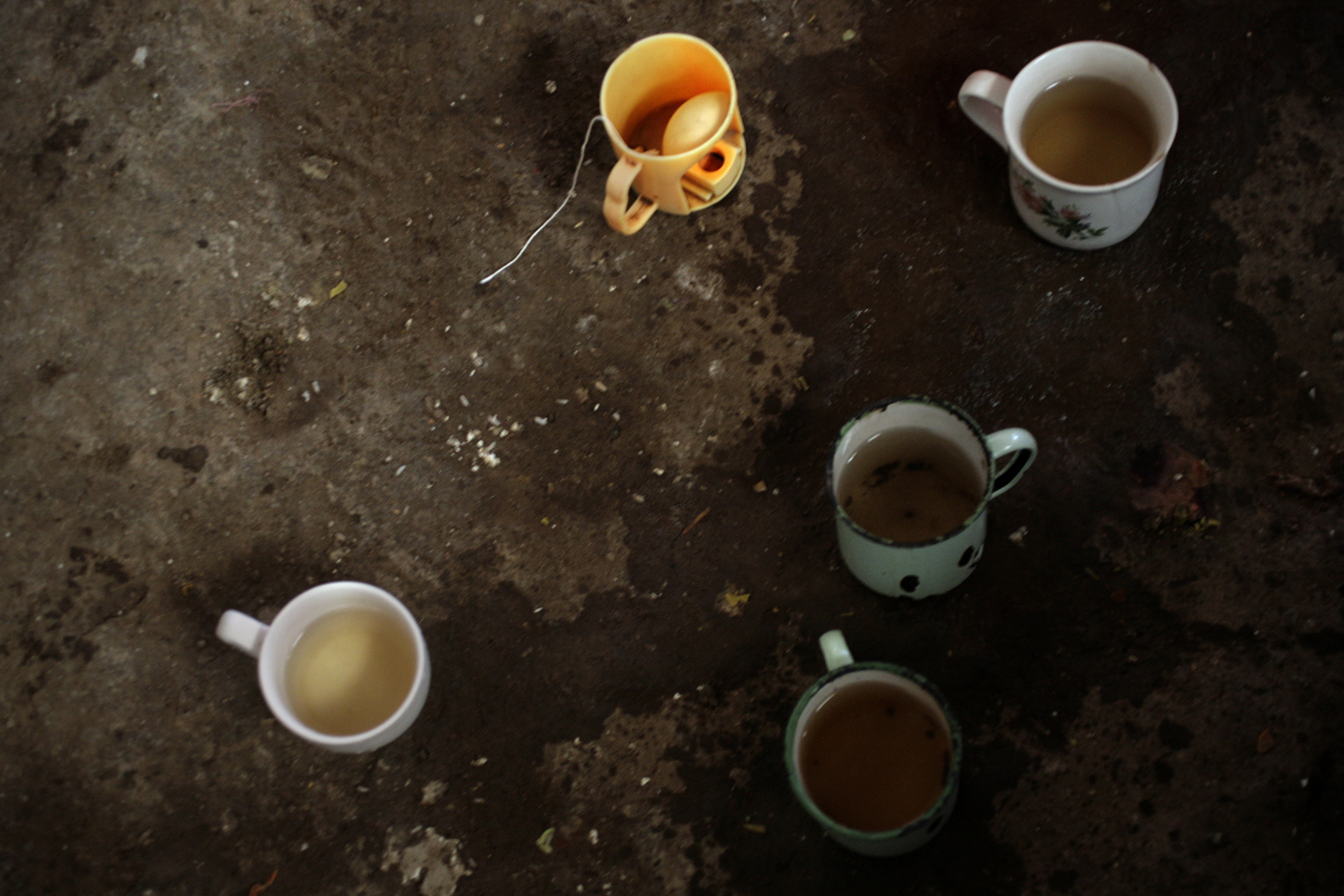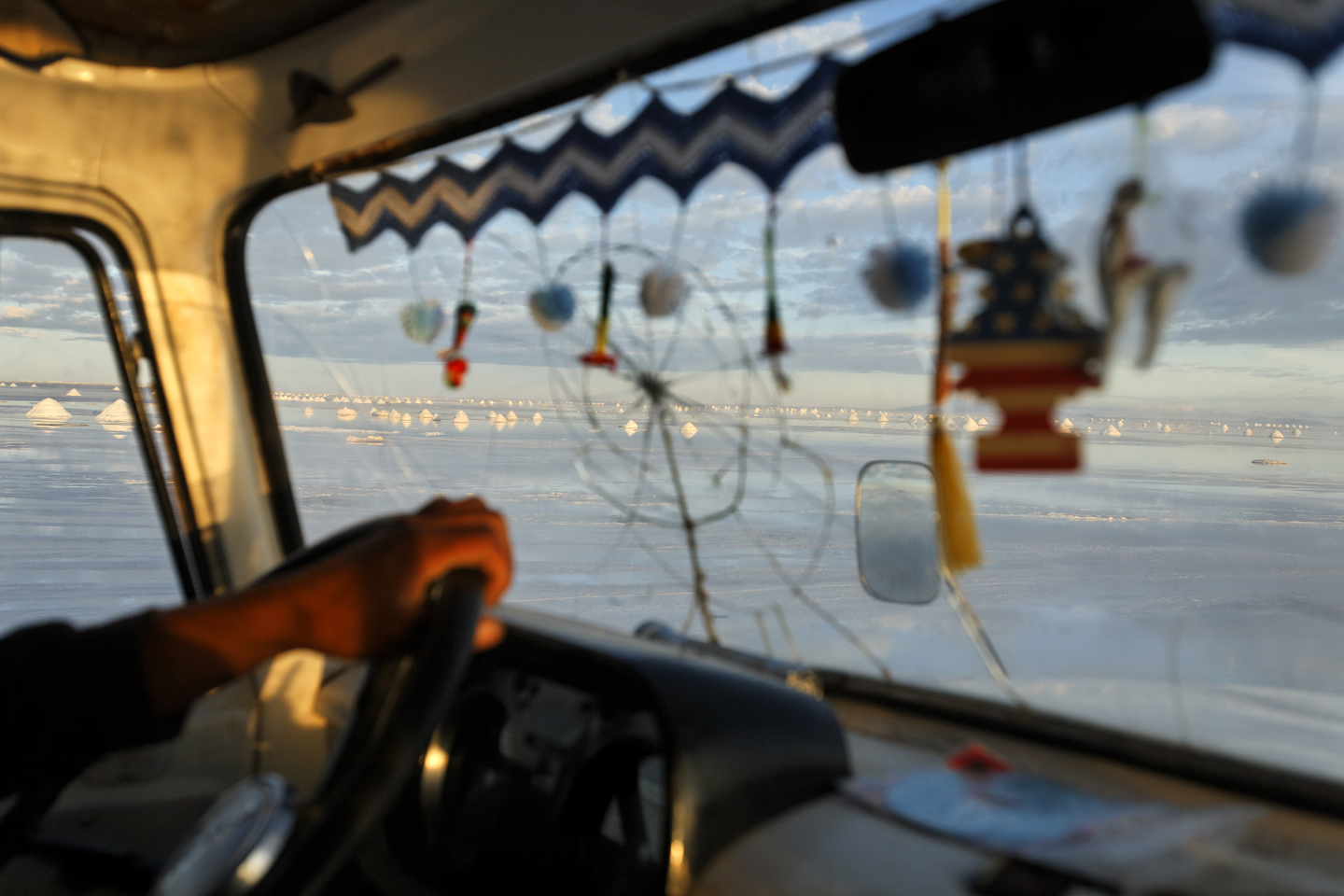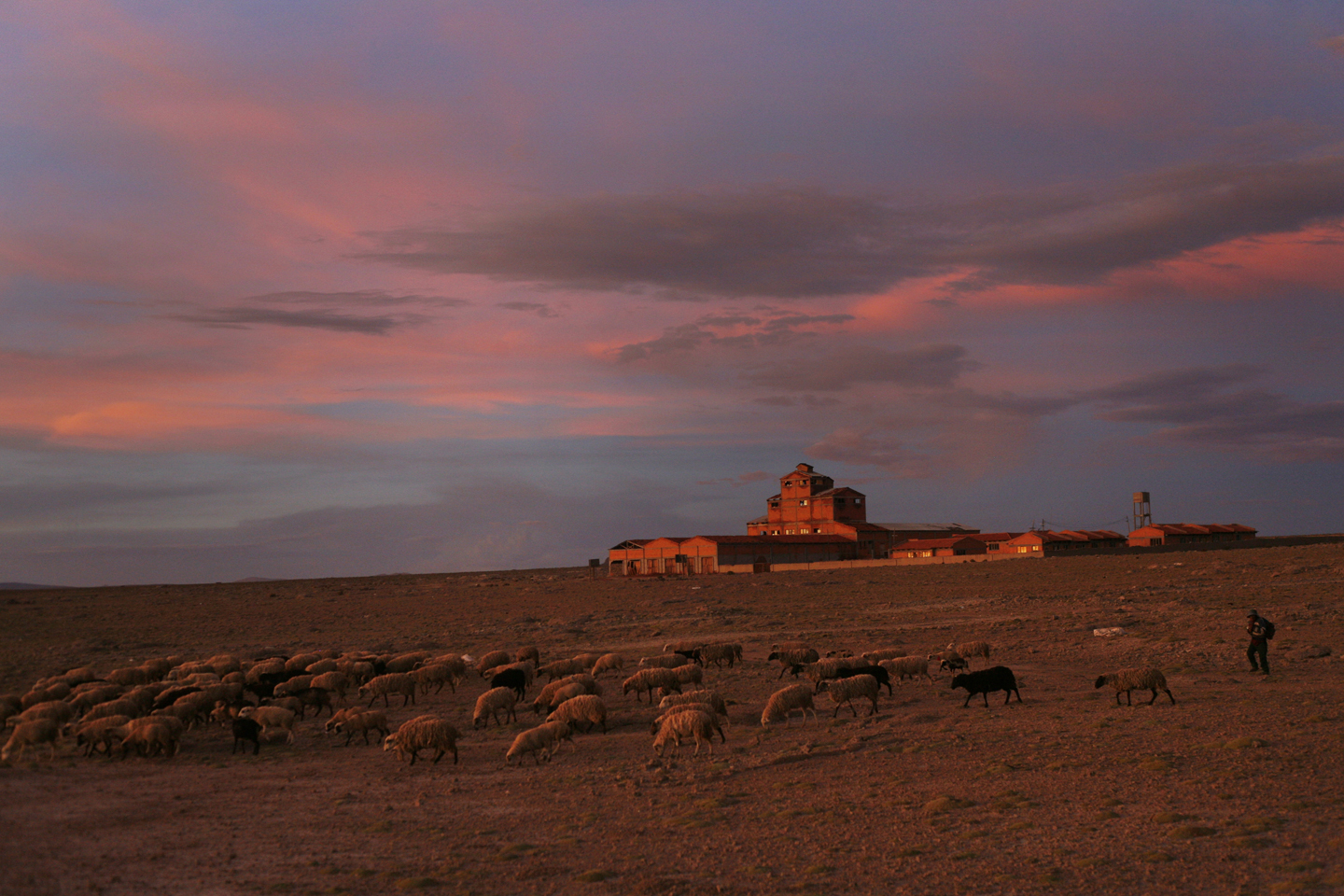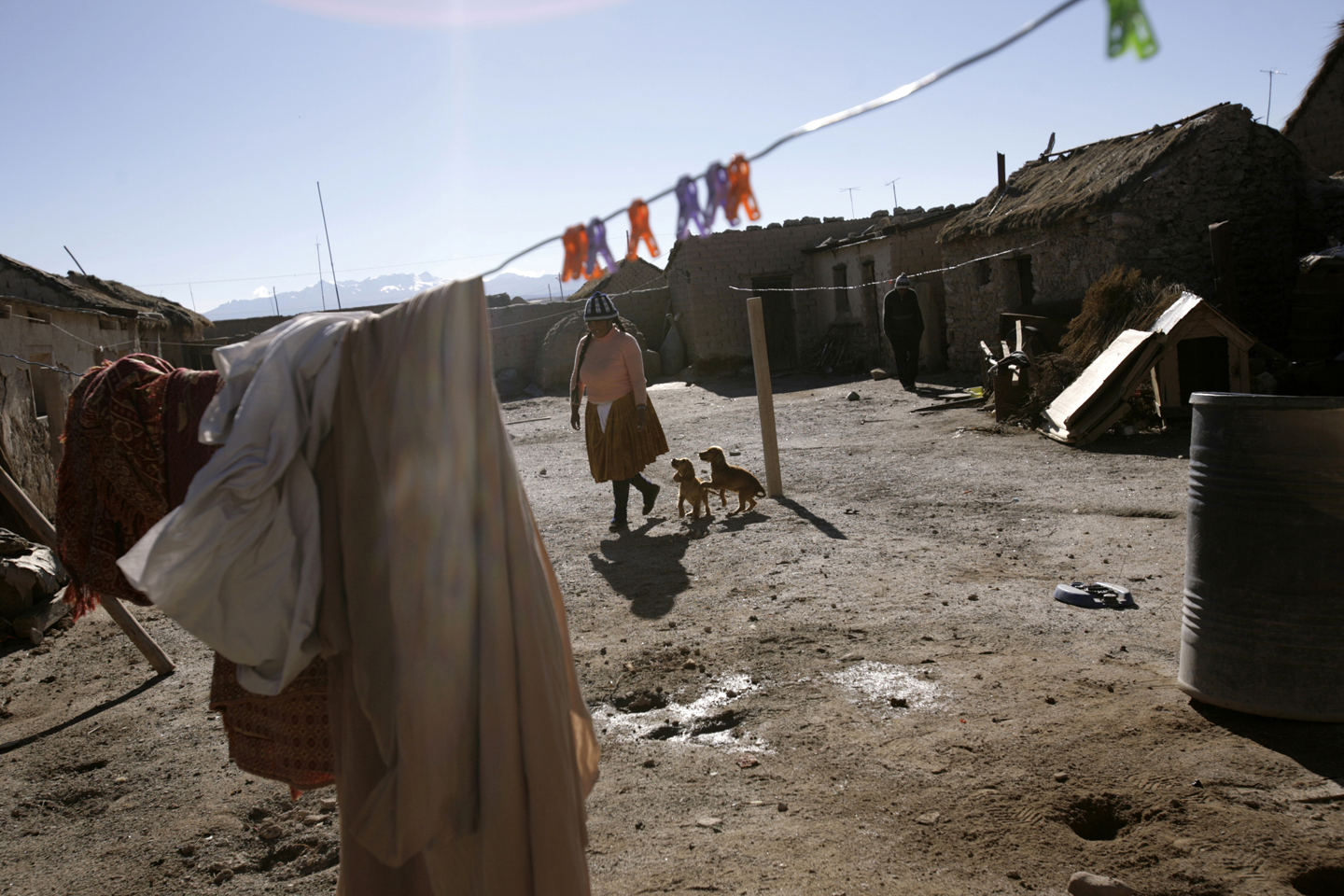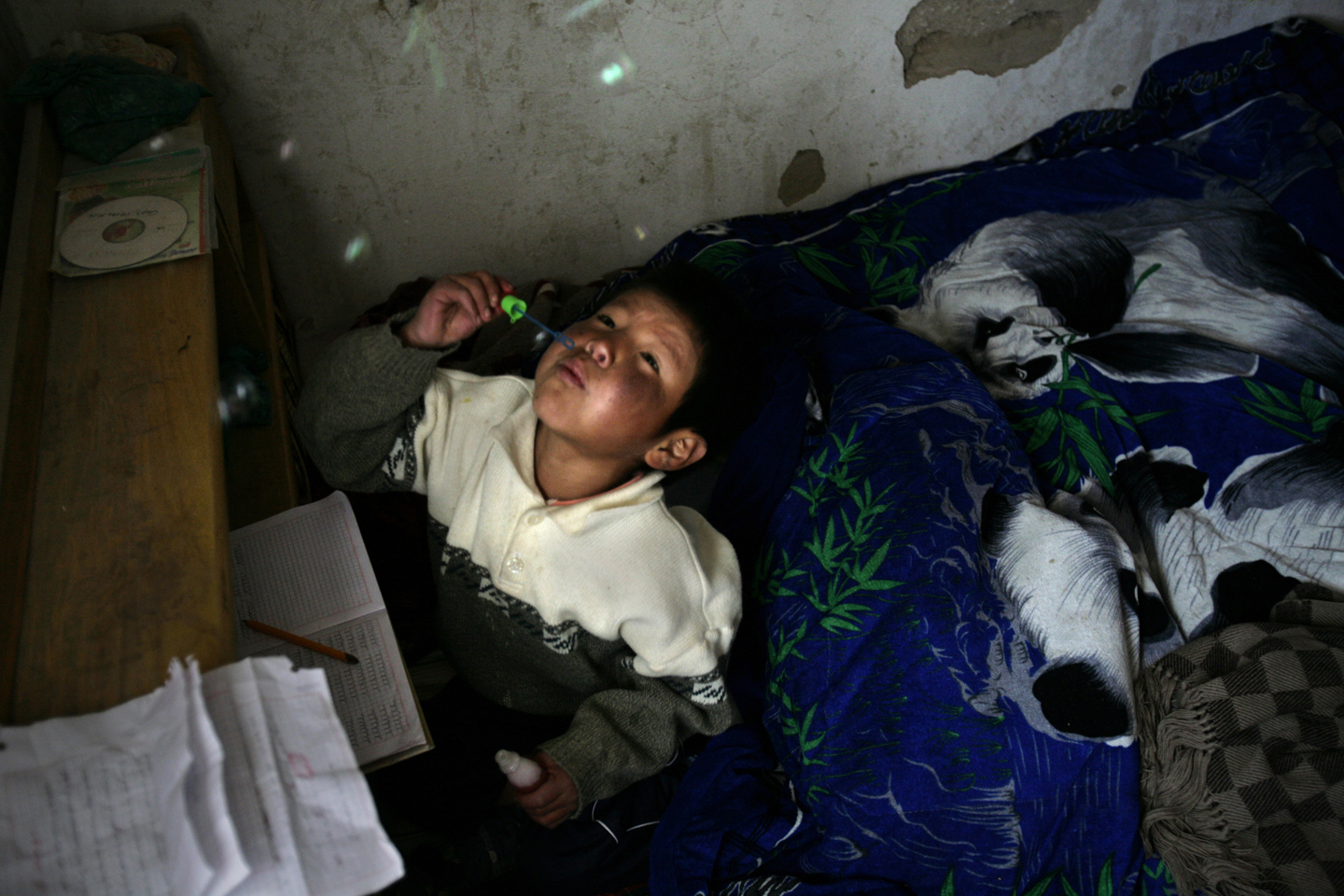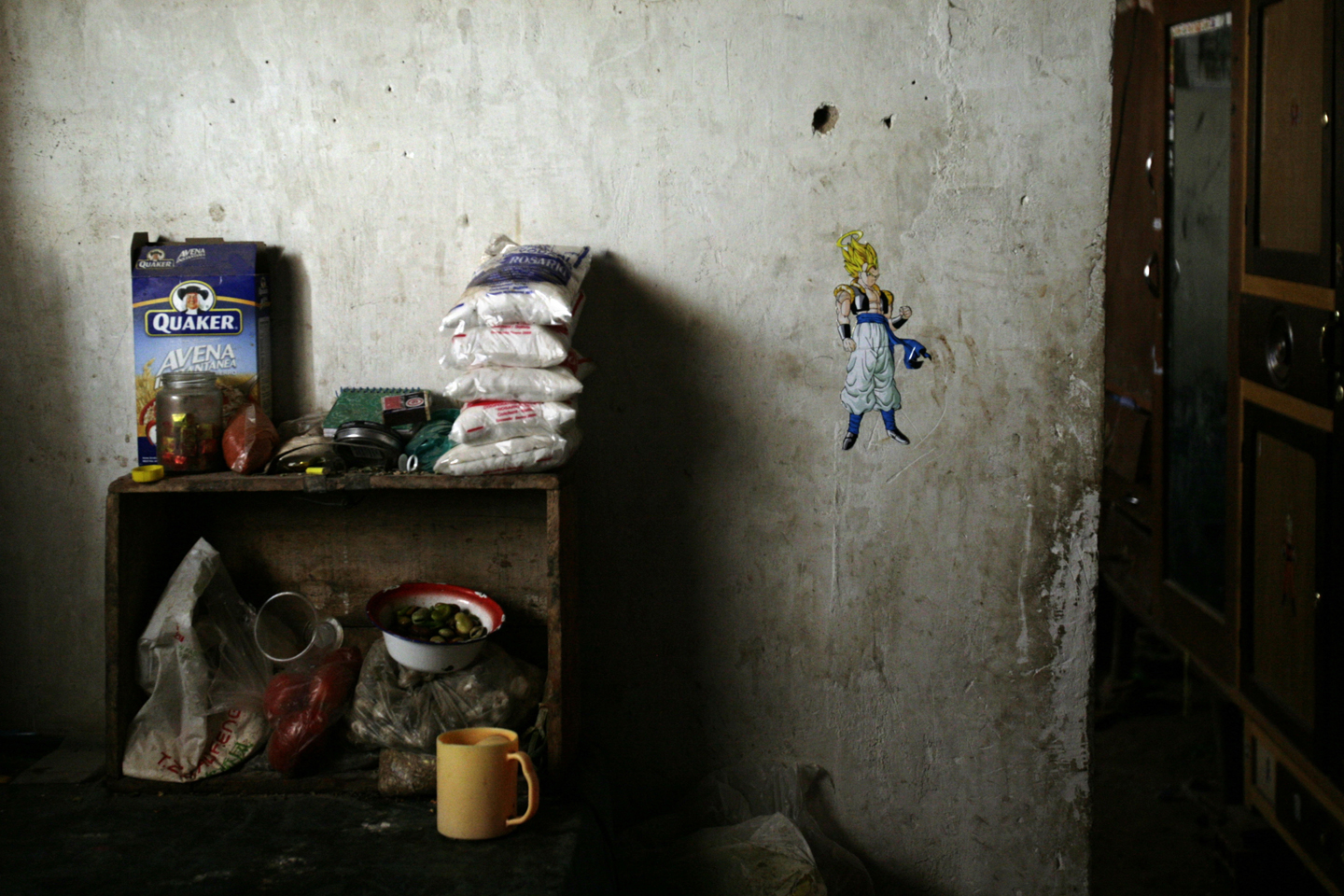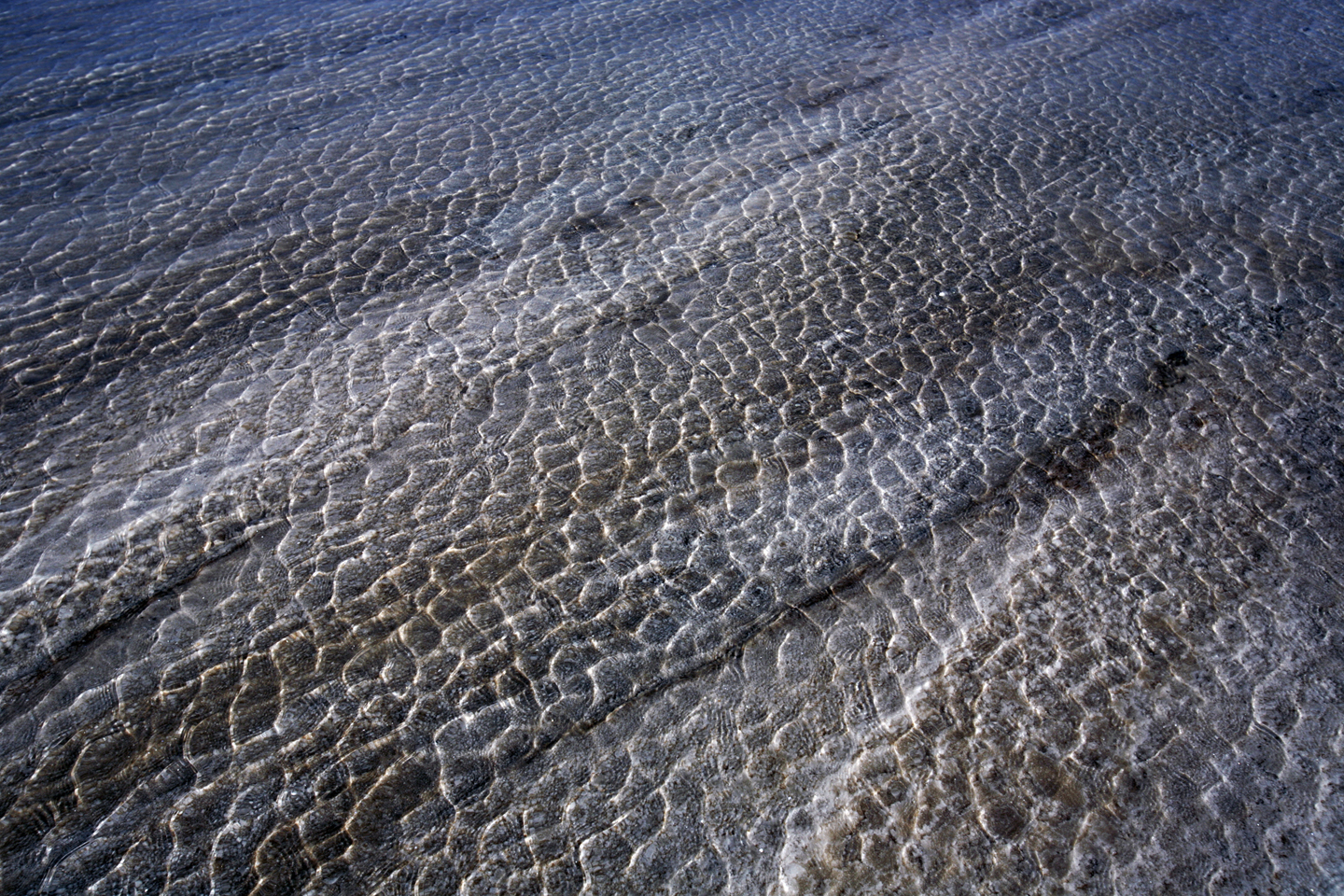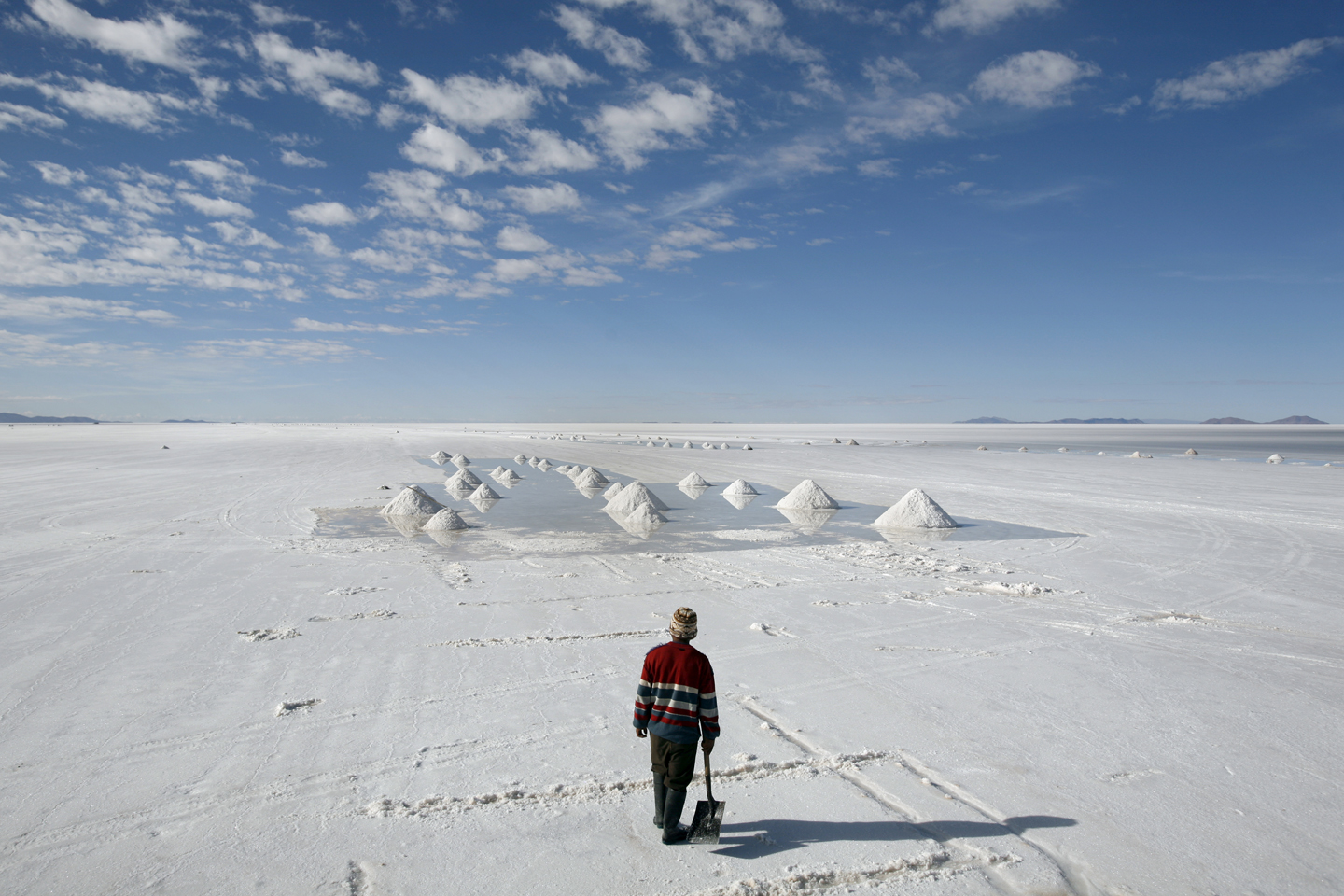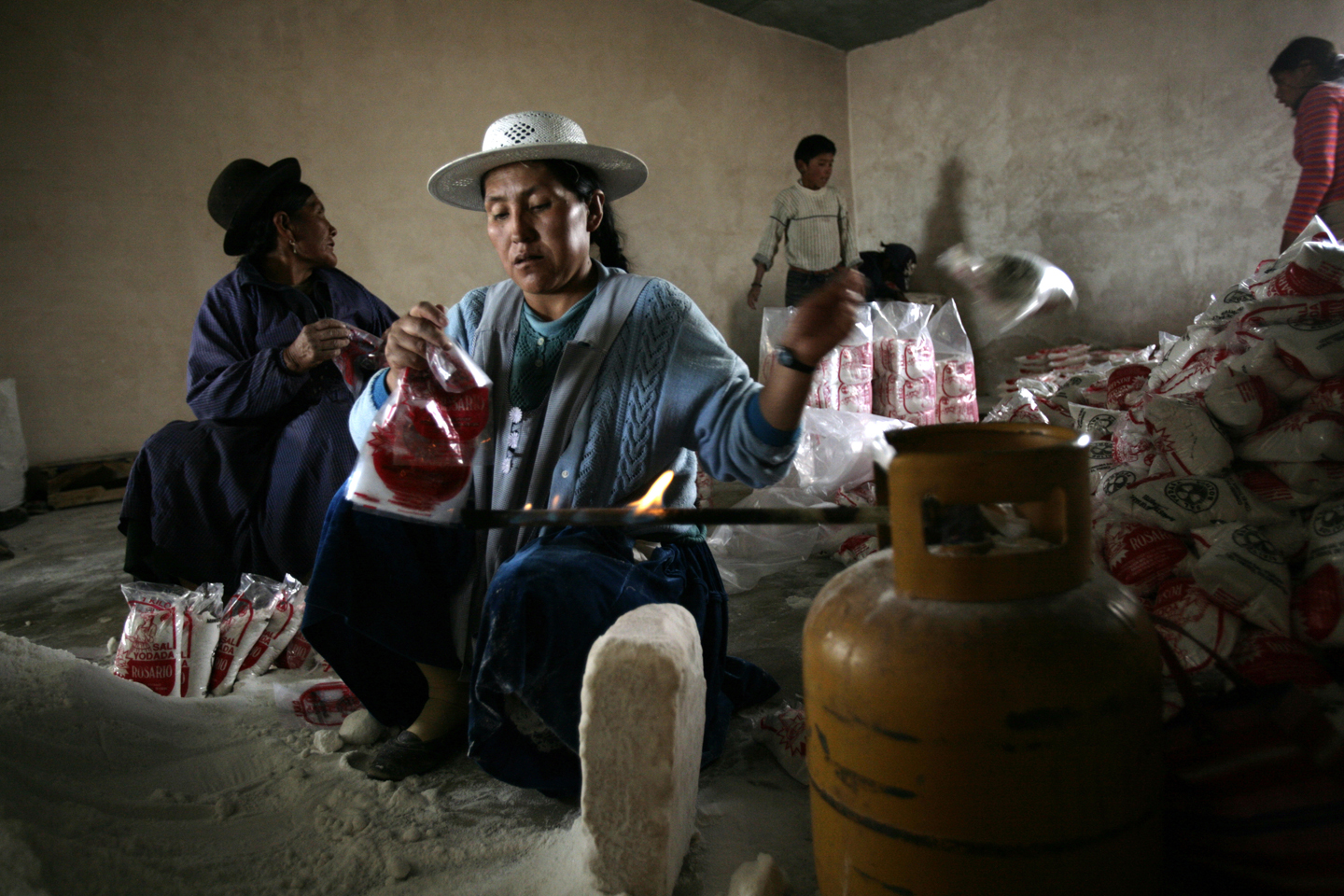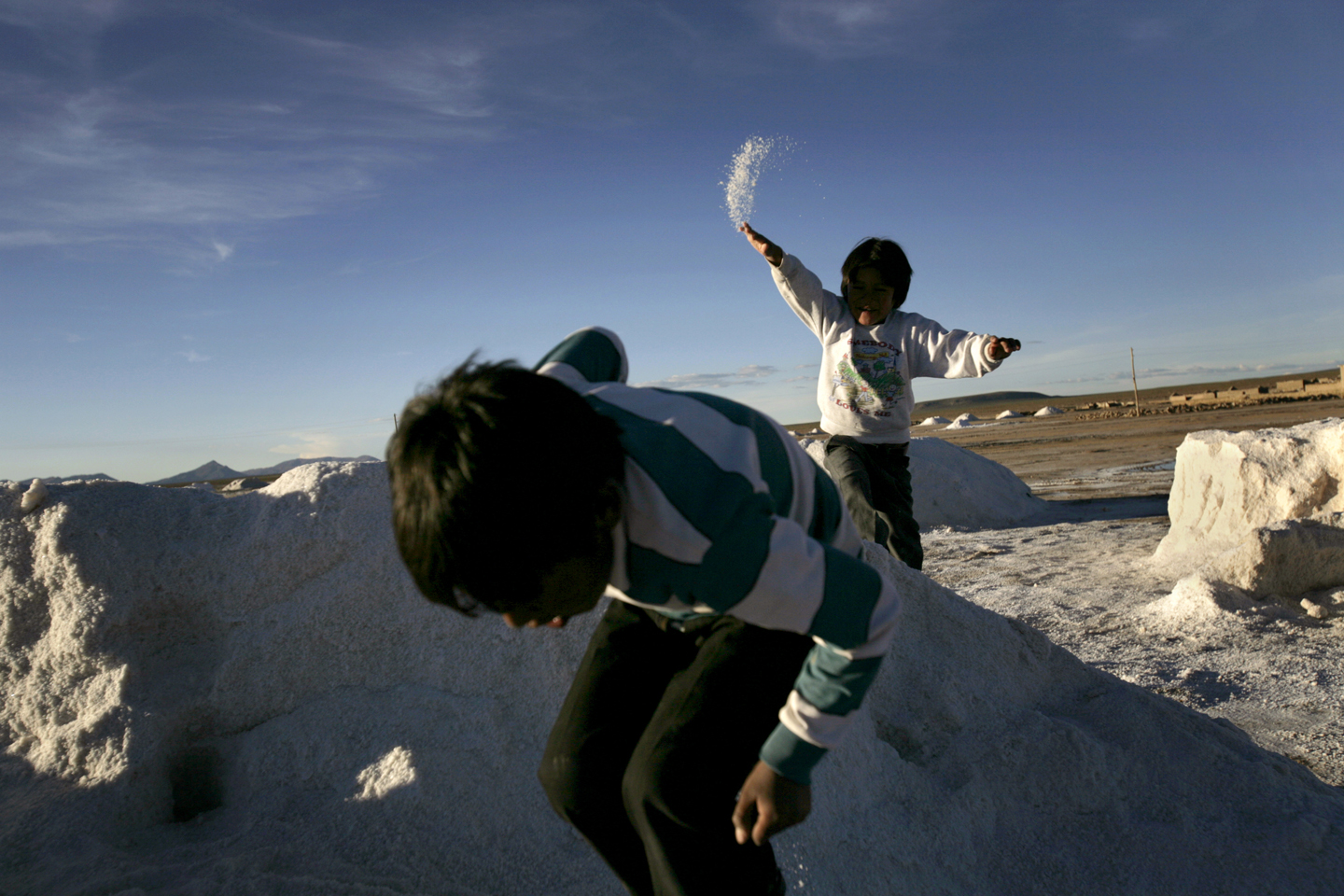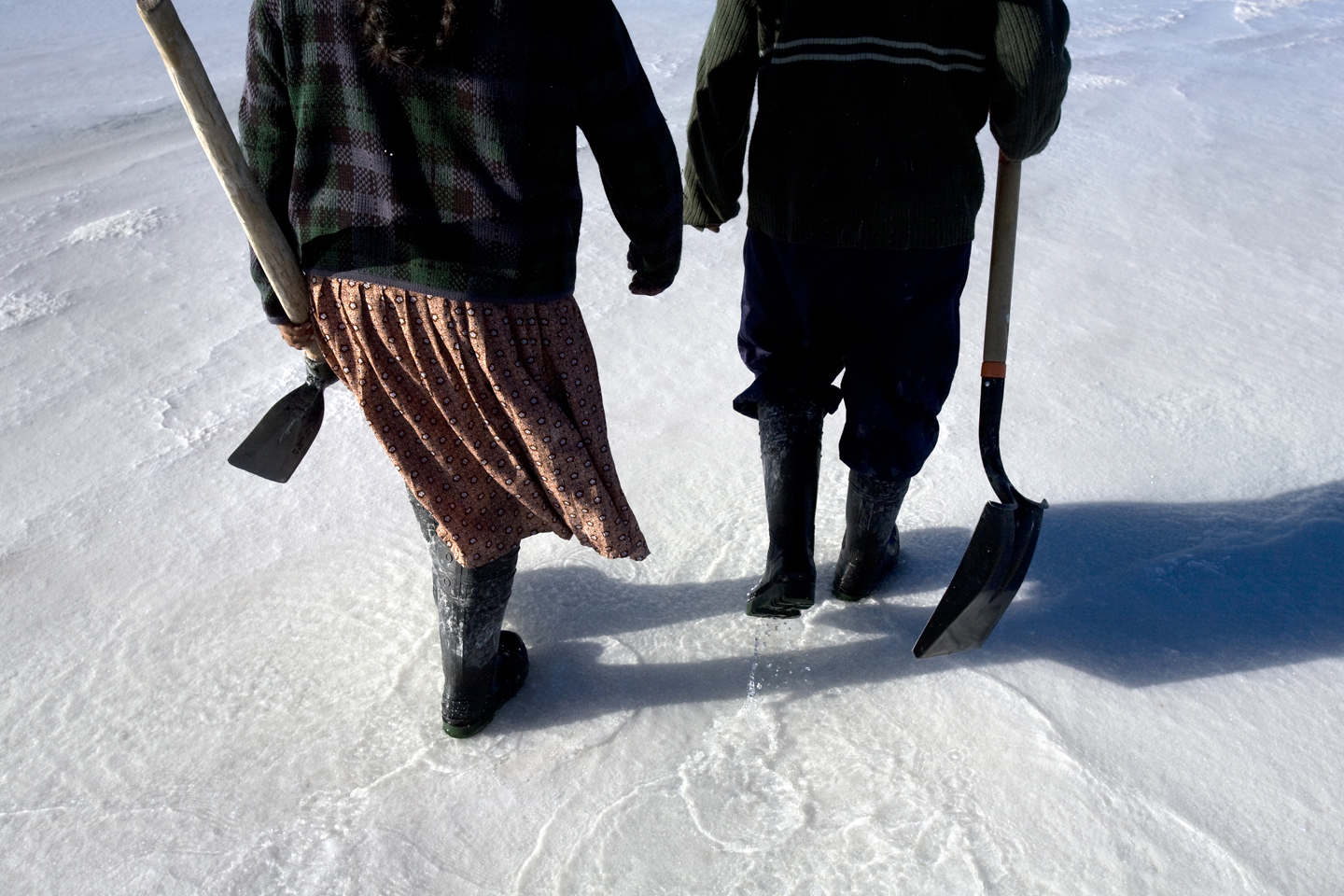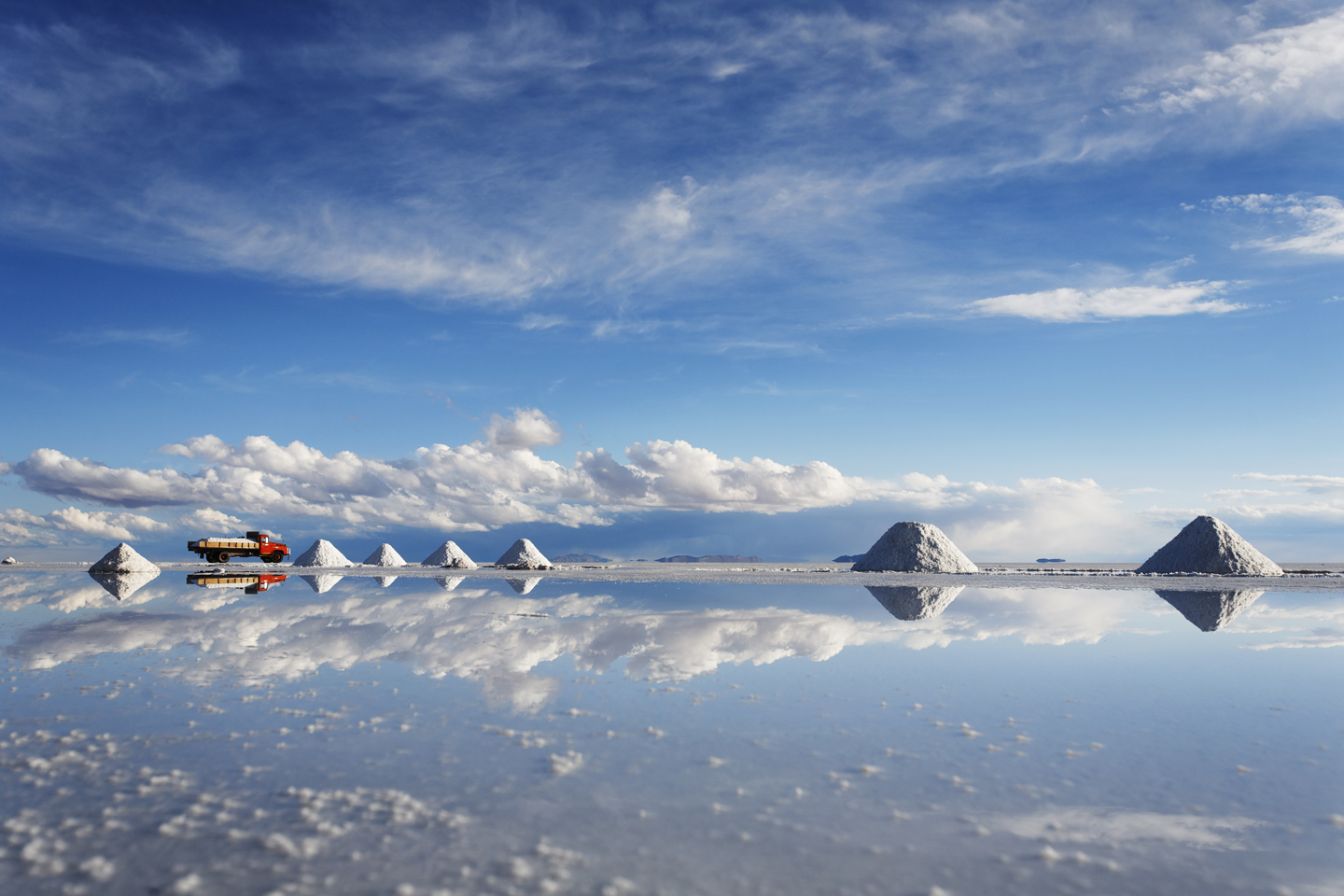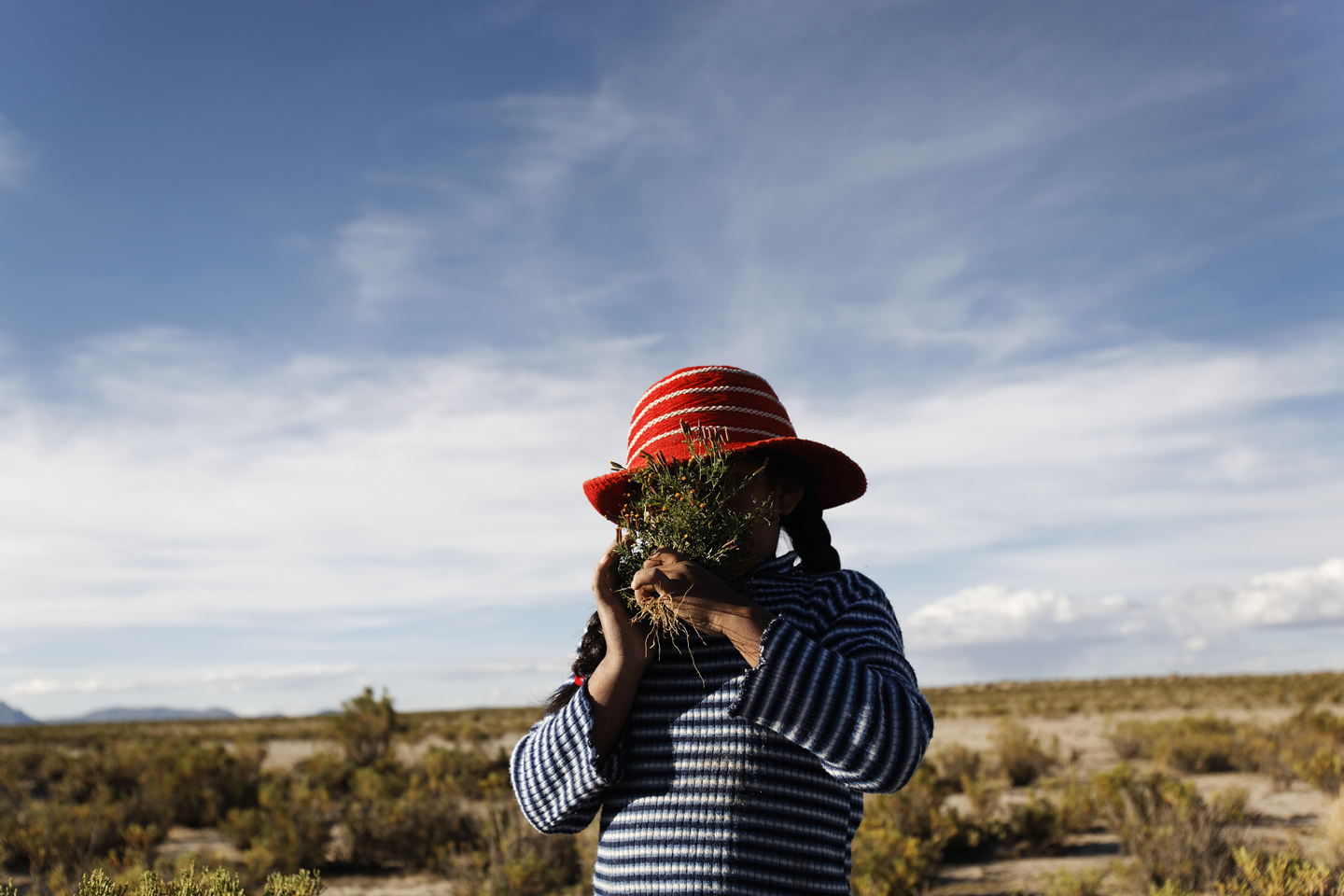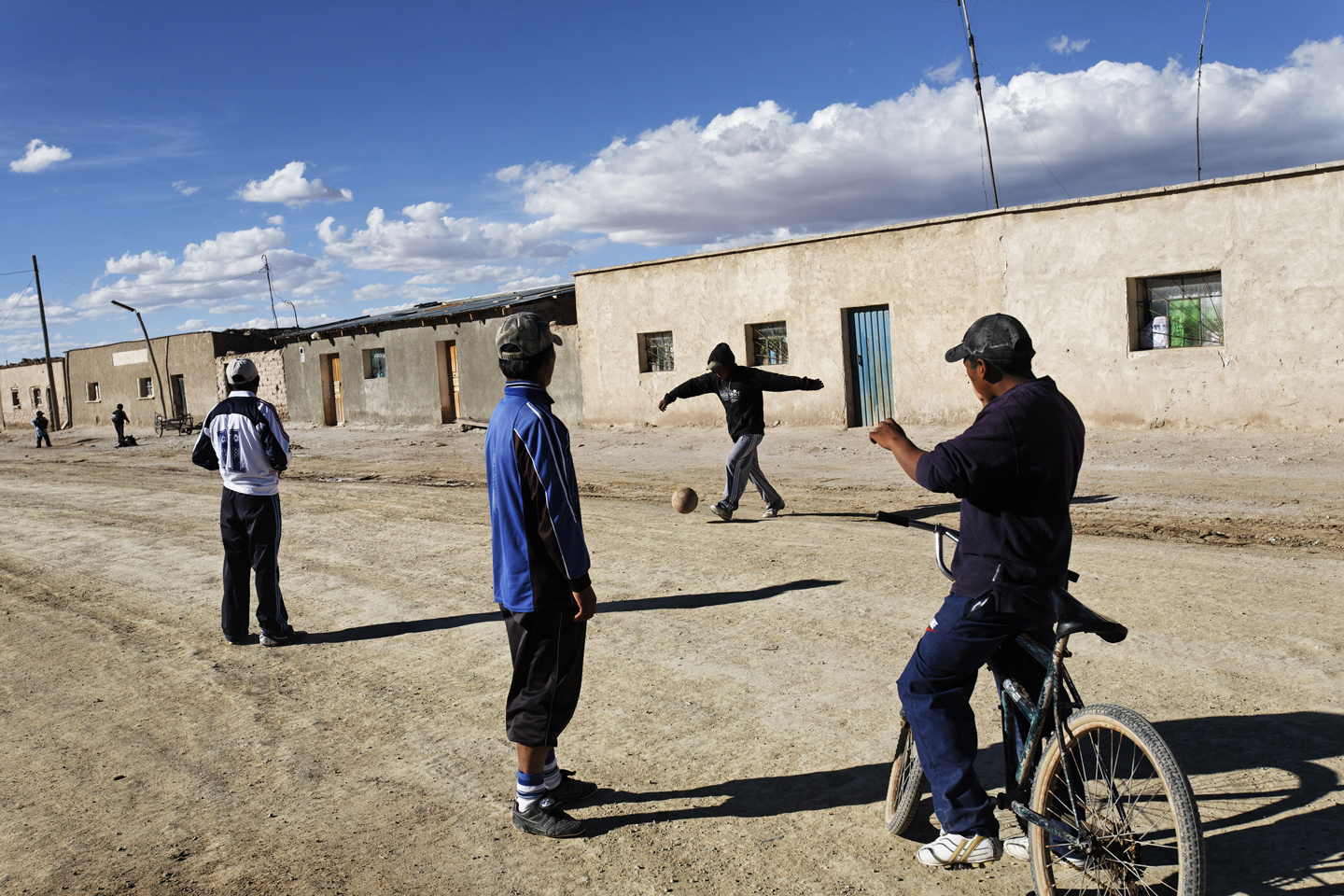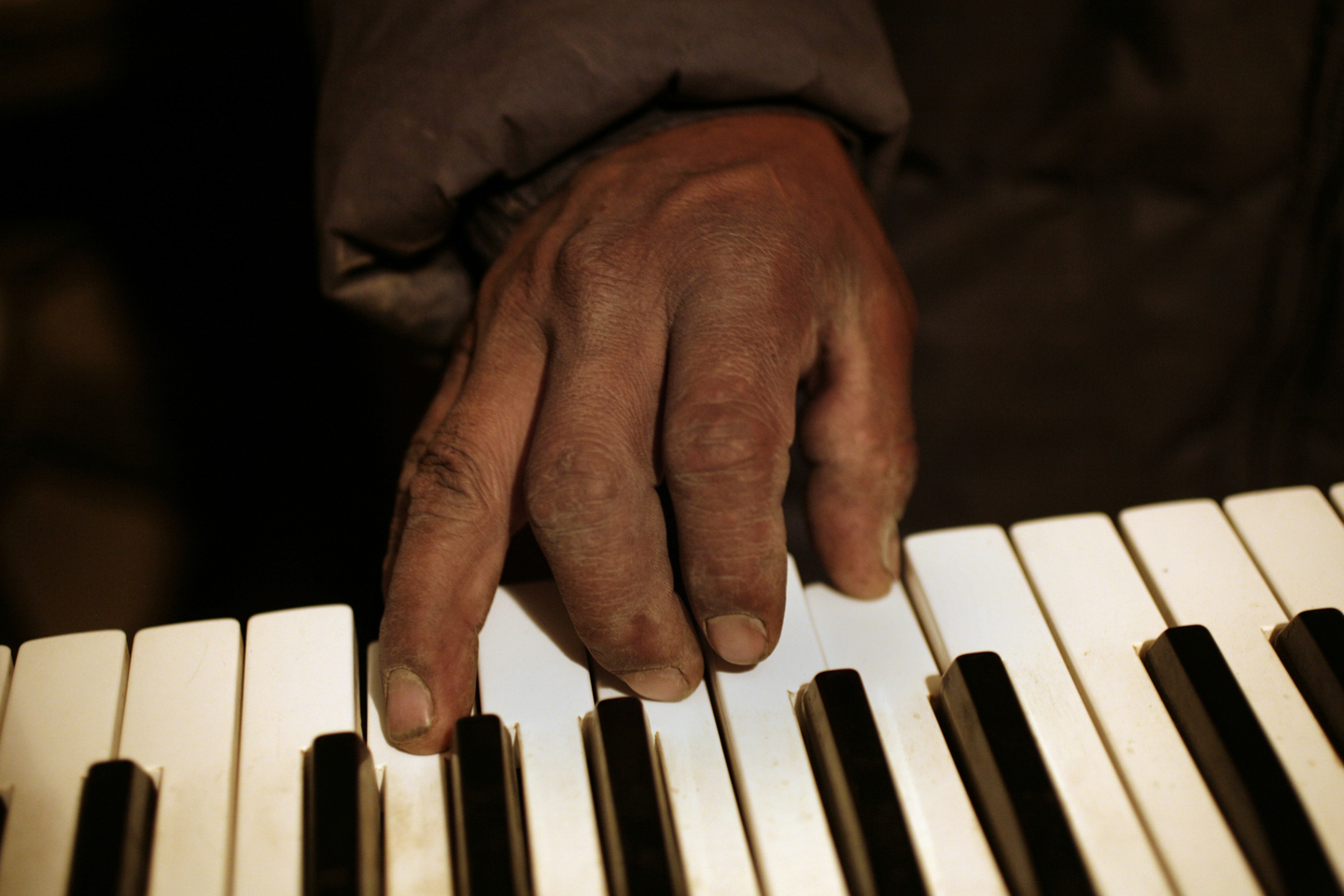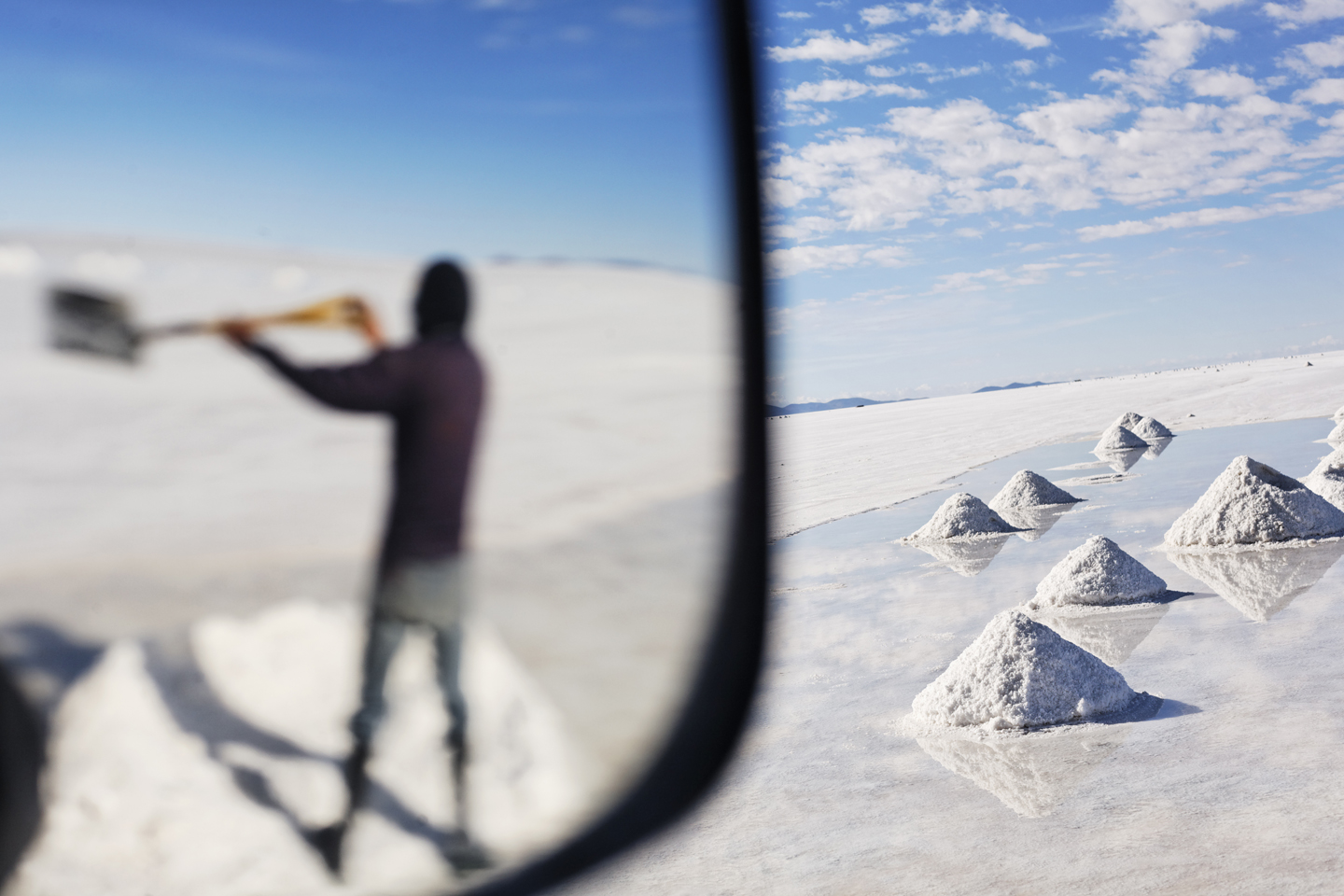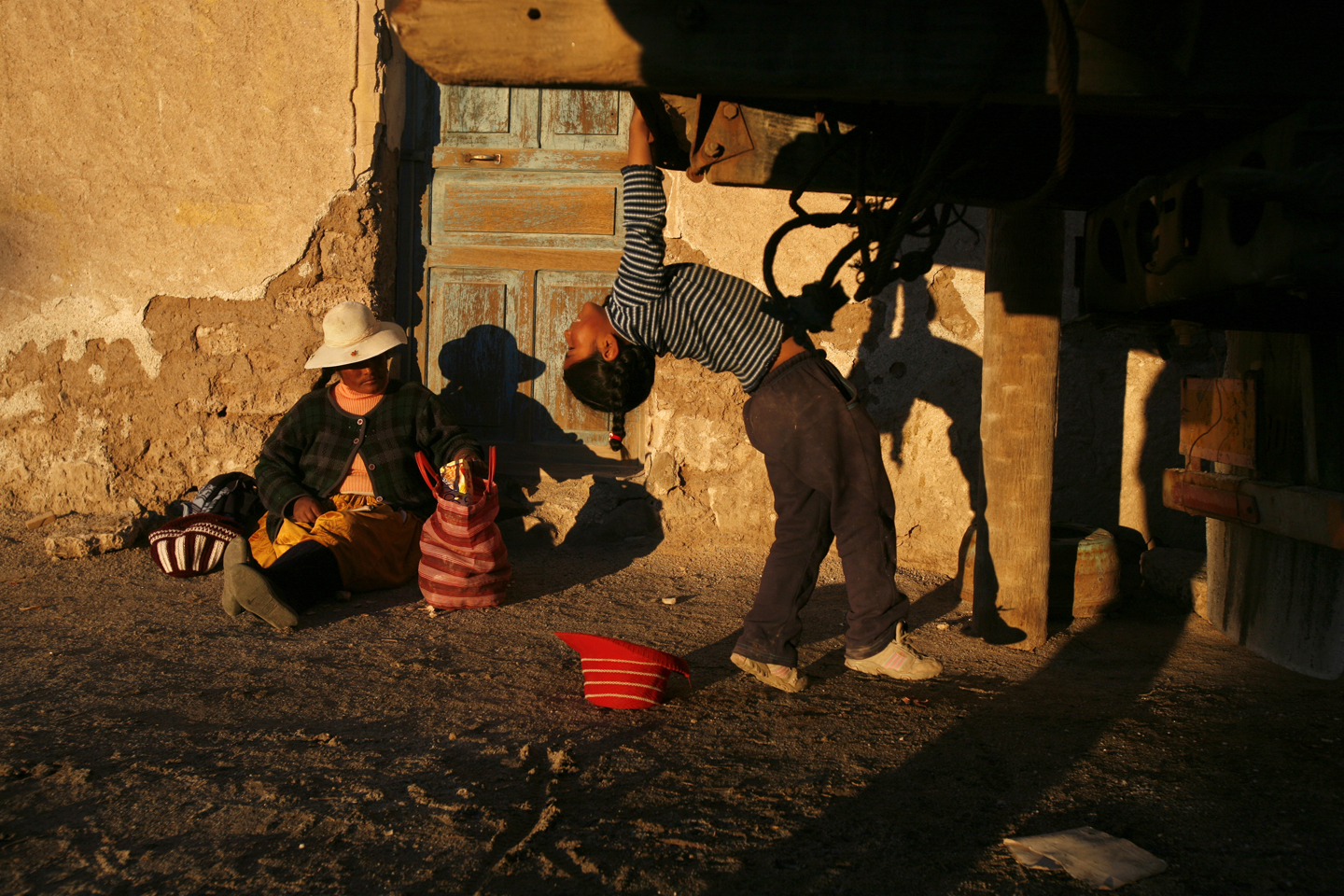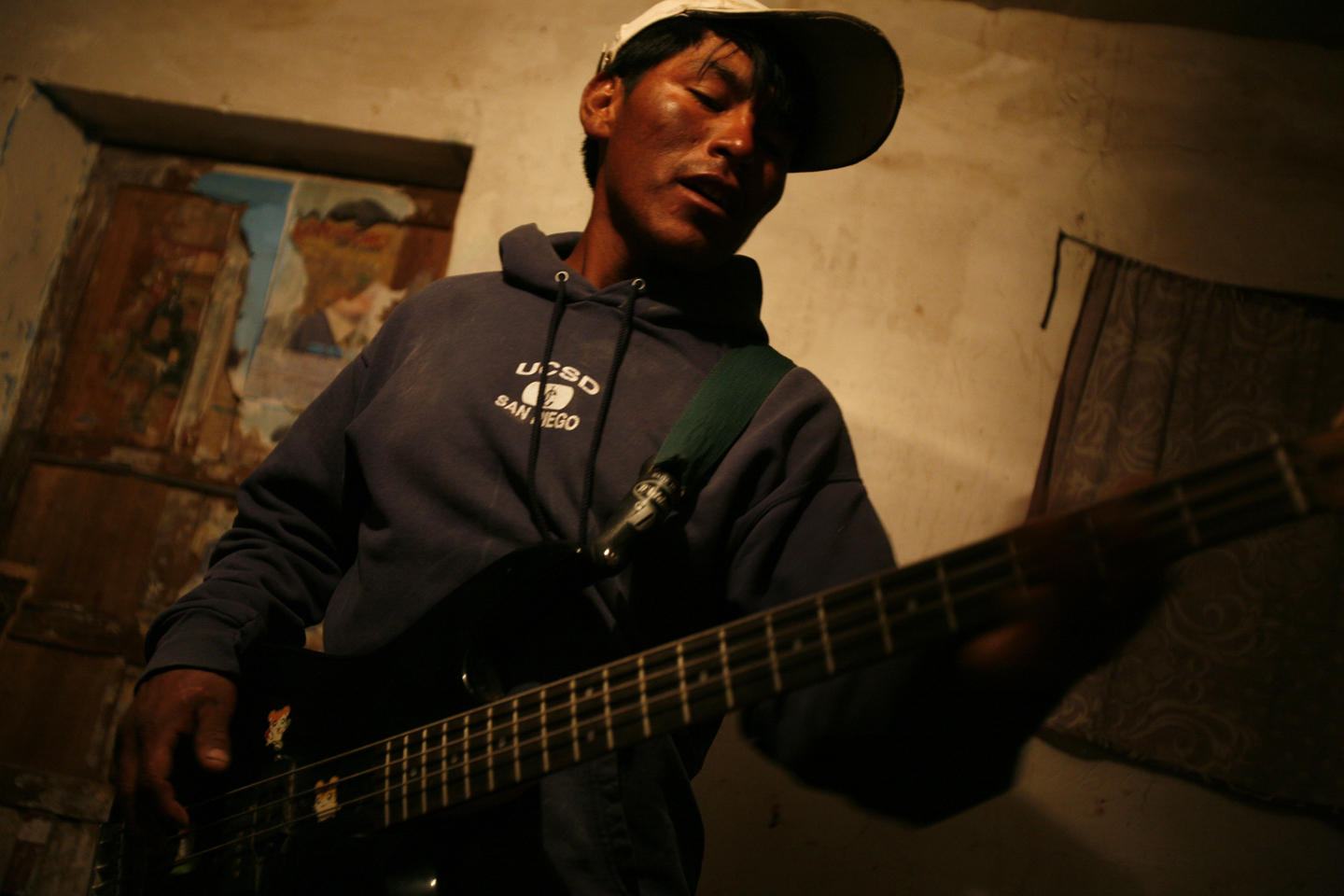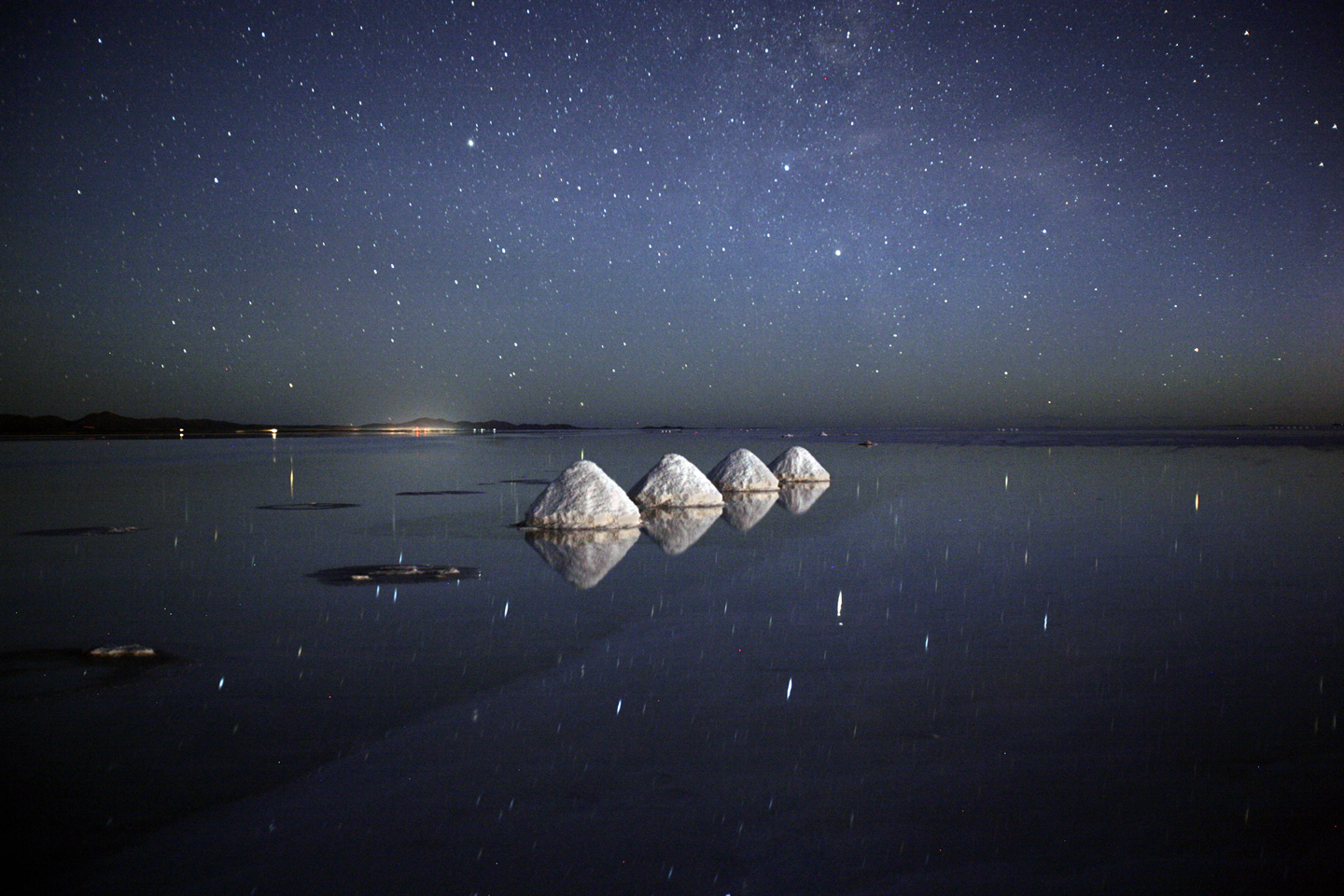Salar [by Karla Gachet & Ivan Kashinsky]
A long time ago the mountains used to walk and they acted like humans do. One of these mountains, Tunupa, was a woman who lived with her husband and three children. One of her kids died, and her husband took the other one, who was still a baby, away. He had cheated on her with another mountain. Tunupa cried a lot and her tears mixed with her breast milk. The valley flooded with salty milk and this is how the salt flat of Uyuni came to be. Tunupa is single to this day and her husband was dumped by his second wife.
Madaí Laime is fifteen and has been bagging salt from the age of six. Her job consists of filling plastic bags with a kilo of salt each, sealing them, and packing them in bigger bags of 50 kilos each. She needs to bag 2500 kilos per day and for this she earns $5. The first time her mother brought her to work she had no idea of how much salt existed. Madaí leaves her home in the morning before school and starts her job, comes back during recess time to continue and finishes after school. Her father abandoned them 9 years ago; he has another family in La Paz and is sick. Her favorite song is Kudai’s “There is Nothing Left” and her younger brother’s name is Bin Laden.
The musical band “Clouds of Love” was created by the Chambi brothers: Leo, Nico, Erik and Nirmo in 1991. When they started out they played on tin cans. Eventually, they saved money and were able to buy all their musical instruments. They rehearse on their free time, depending on their mood. Nirmo wants to save up money to buy his own trailer and sell his salt outside of Colchani. Instead of making $143 a month he can make up to $1500. Erik hates working in the salt flats and wants to become a tourist guide. Nico can’t seem to fine-tune his bass, which is missing its last string. Leo has a wife in the north of Argentina. They live in separate countries because she can’t stand the cold weather in Colchani. He can’t stand the heat where she lives either.
The hotel “Salty Moon” majestically sits on top of a hill. From its restaurant, surrounded by tinted glass windows, you get a 180-degree view of the salt flat. This peculiar construction was built with salt, and it’s targeted to international travelers who enjoy comfort, silence, gourmet food and walking on salty floors. To guarantee its optimal quality, the salt and most of the products used for cooking, are imported from Argentina. The prices of the rooms vary from $80 to $120 a night. The other hotel in Colchani, not quite as fancy, charges $3. Not too long ago, president Evo Morales stayed in the hotel. After praising its owners for such comfortable accommodations, he demanded they create a special price for Bolivians. They lowered it to $50 a night.
Angela, Marcelo, John and his dog Skycer are all neighbors and meet every evening to play in the salt mounds outside a salt-processing factory across the street. They don’t care about legends of walking mountains. They have never been into the salt flat itself, and could care less about the thousands of visitors who come to witness one of nature’s unique wonders. They’re not even interested in knowing if the factories processing salt in their town use enough iodine to make it safe for human consumption. Their only worry is their 7 p.m. curfew as they jump and free-fall over the white mountains of their salty world.


